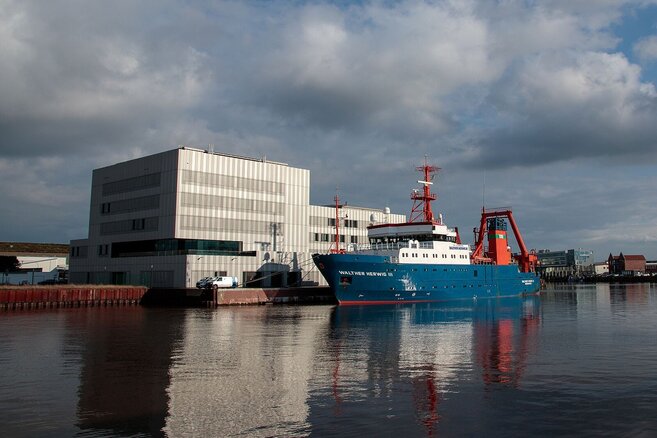

Institut für
SF Seefischerei
M.Sc. Tahereh Nakisa

Institut für Seefischerei
Herwigstraße 3127572 Bremerhaven
About My Research
World fisheries is facing extraordinary challenges due to climate change and concurrent increasing seafood demand for the growing human population. Fishery science progressed during the last century because of combining knowledge from oceanography, fish biology, marine ecology, and fish population dynamics. Throughout this period, understanding and describing fish recruitment as the main factor affecting fish populations became a key focus for fisheries oceanographers. Recruitment is highly variable and is believed to be primarily driven by mortality of fish early-life stages (ELSs) that include egg, larval and juvenile stages. There are several factors affecting mortality of fish ELSs such as predator’s abundance, temperature, and the nutritional state and growth rates, which are themselves governed by prey availability and other environmental factors. Therefore, understanding the recruitment dynamics and our ability to predict it is crucial for the sustainable fisheries management.
The aim of the research project is to improve our understanding of the recruitment success of marine fish species and to assess the possible influence of climate change and consequences of human activities on the sensitive life stages of fish species (eggs, larvae, and young juveniles). Individual-based models (IBMs) is one of the powerful tools to investigate factors controlling survival of young fishes. In IBMs, individuals with a high degree of complexity are simulated to recognize how the set of attributes and behavior of the individuals affect the community as a whole. In this project, I will further develop individual-based physiological models of fish early-life stages and apply them to explore bottom-up and top-down drivers of recruitment variability of commercially and ecologically important fish species.
The first step of the research project is to review existing physiological models of sea fish species and identify gaps in parameterizations of intrinsic traits of fish early-life stages. Particular focus will be on the fish species inhabiting the North and the Baltic Seas. Lacking parameterizations will be filled with field observations and laboratory experiments previously reported in literature. Special attention will be paid to model validation, uncertainties in model parameters, assessment of model sensitivity toward the most uncertain parameters and model predictive skills. The next step of my research project will be to integrate improved physiological models of fish early-life stages into a novel end-to-end (E2E) cross-scale model systems for coastal areas developed within the scope of the BMBF-Project “CoastalFutures”. To be more specific, I will couple the fish larvae IBMs with hydrodynamic, low-trophic level and species distribution models. These coupled models will be then applied to investigate how future climate changes and intensifying human activities (offshore wind energy, coastal protection measures, and nature parks) will affect recruitment success of selected fish species in the North and the Baltic Seas.
Educational Background
- Since 2022: Research Assistant and PhD Candidate at Thünen Institute of Sea Fisheries
- 2019 - 2021: Research Assistant - Condensed Matter Physics, Faculty of Science, University of Yasuj, Iran “The Relation between Thermodynamics and Multifractality of Complex Networks”
- 2015 - 2017: M.Sc. - Solid States Physics, Faculty of Science, Persian Gulf University, Iran “A Study of Multifractal Processes by the Visibility Algorithm in Complex Networks”
- 2011 - 2015: B.Sc. Physics, Faculty of Science, Persian Gulf University, Iran






